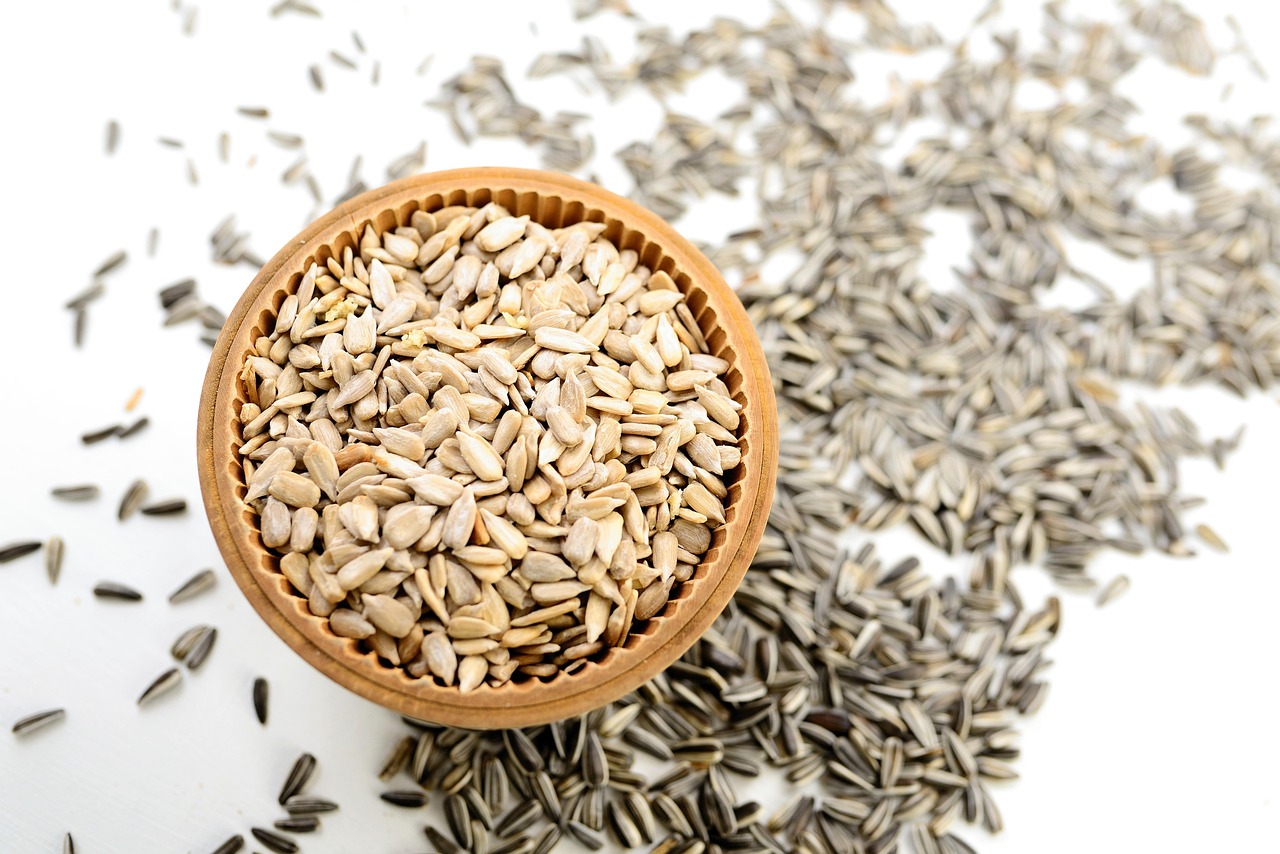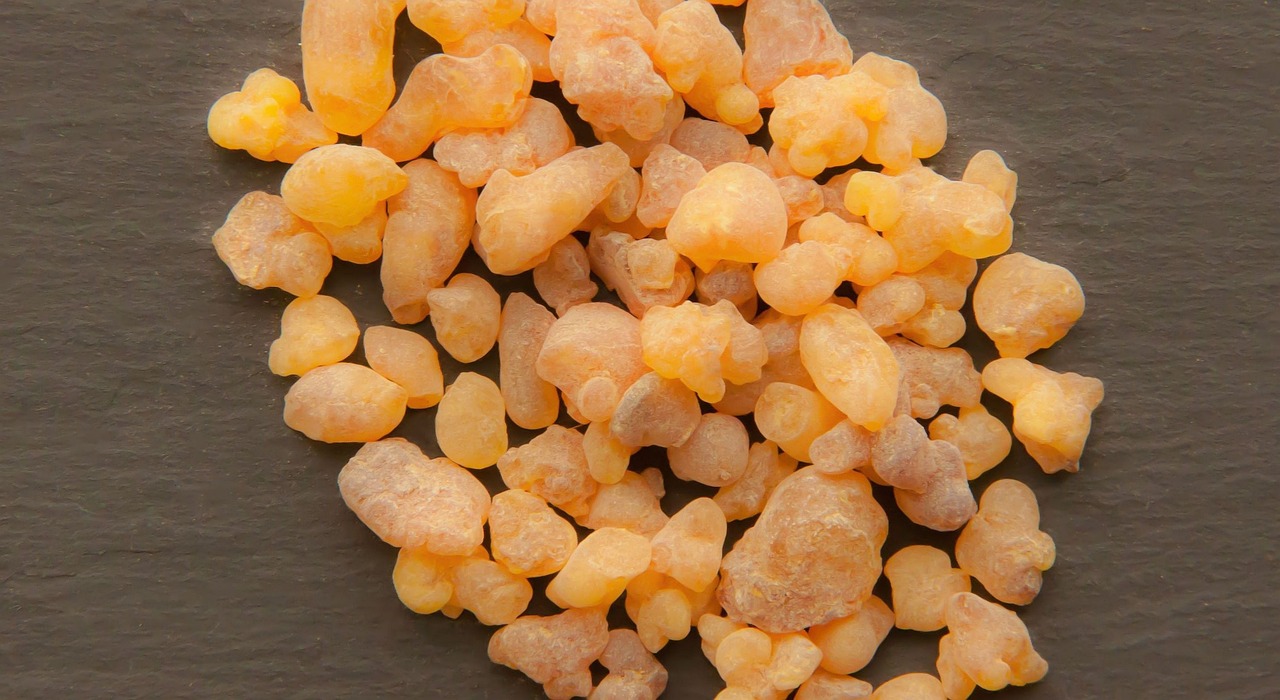This article delves into the remarkable potential of carnosine, a naturally occurring dipeptide, as an anti-aging agent. We will explore its mechanisms, dietary sources, and the broader implications for health and longevity.
What is Carnosine?
Carnosine is a dipeptide formed from the amino acids beta-alanine and histidine. It is predominantly found in high concentrations within muscle and brain tissues, contributing to several vital biological functions, including its notable antioxidant properties.
The Science Behind Carnosine’s Anti-Aging Properties
Research has shown that carnosine plays a pivotal role in combating oxidative stress and cellular damage, which are significant contributors to the aging process. Understanding these mechanisms is crucial for developing effective anti-aging strategies.
- Oxidative Stress and Aging: This occurs when there is an imbalance between free radicals and antioxidants in the body, leading to cellular damage. Carnosine’s antioxidant properties help mitigate these harmful effects, potentially decelerating the aging process.
- Carnosine as an Antioxidant: Acting as a potent scavenger of free radicals, carnosine reduces oxidative damage to cells, which is essential for preserving cellular integrity and function as we age.
- Cellular Protection Mechanisms: Carnosine stabilizes cell membranes and prevents glycation, a process linked to age-related diseases, thereby playing a vital role in maintaining overall health during aging.
Sources of Carnosine
Carnosine is primarily found in animal-based foods, especially in meats. Understanding these dietary sources can help individuals effectively incorporate this beneficial compound into their diets.
Health Benefits of Carnosine Beyond Anti-Aging
In addition to its anti-aging effects, carnosine offers various health benefits, including improved muscle function, enhanced cognitive performance, and better metabolic health, making it a valuable addition to one’s diet.
- Carnosine and Muscle Health: Carnosine buffers acid in muscles during exercise, enhancing performance and recovery, which is particularly beneficial for athletes.
- Impact on Cognitive Function: Emerging studies suggest that carnosine may support brain health by reducing neuroinflammation and oxidative stress, potentially lowering the risk of neurodegenerative diseases as we age.
Supplementing with Carnosine: What You Need to Know
For those looking to enhance their anti-aging regimen, carnosine supplements are available. It is important to understand proper dosage, potential side effects, and interactions for safe and effective use.
- Recommended Dosage: While there is no universally accepted dosage for carnosine supplementation, studies suggest a range of 500-2000 mg per day may be effective. Consulting with a healthcare provider is recommended before starting supplementation.
- Possible Side Effects and Interactions: Carnosine is generally considered safe, but some individuals may experience mild side effects. Awareness of potential interactions with medications is essential to avoid adverse effects.
Conclusion: Embracing Carnosine for Longevity
Incorporating carnosine into your health regimen may offer significant anti-aging benefits. By understanding its sources, mechanisms, and health implications, individuals can make informed choices to enhance their longevity and quality of life.

What is Carnosine?
Carnosine is a fascinating dipeptide that plays a significant role in various biological processes within the body. Composed of two amino acids, beta-alanine and histidine, carnosine is predominantly found in high concentrations in muscle and brain tissues. This unique composition contributes to its numerous physiological functions, particularly its potent antioxidant properties.
As a naturally occurring compound, carnosine is synthesized in the body and can also be obtained through dietary sources, primarily from animal-based foods such as meat and fish. Its presence in muscle tissues suggests a vital role in muscle function, while its abundance in the brain indicates potential implications for cognitive health.
Recent research has highlighted the importance of carnosine in combating oxidative stress, a major contributor to the aging process. By neutralizing free radicals, carnosine helps to protect cells from damage that can lead to various age-related diseases. This cellular protection is crucial for maintaining overall health and vitality as we age.
Moreover, carnosine’s ability to stabilize cell membranes and prevent glycation—a process that can lead to the formation of harmful compounds—further underscores its protective role. Glycation can contribute to the development of chronic conditions, making carnosine an important factor in promoting long-term health.
In summary, understanding what carnosine is and its functions can empower individuals to make informed dietary choices and consider supplementation as a means to enhance their overall health and longevity. As research continues to unfold, the potential benefits of carnosine may extend beyond its current applications, offering exciting possibilities for future health strategies.

The Science Behind Carnosine’s Anti-Aging Properties
Understanding the Science Behind Carnosine’s Anti-Aging Properties
Carnosine, a naturally occurring dipeptide, is gaining attention in the realm of anti-aging research. This article delves into the mechanisms by which carnosine combats oxidative stress and cellular damage, both of which are significant contributors to the aging process.
What is Oxidative Stress?
Oxidative stress arises when there is an imbalance between free radicals and antioxidants in the body. Free radicals are unstable molecules that can cause damage to cells, proteins, and DNA, leading to various age-related conditions. Carnosine’s role as a potent antioxidant is crucial in counteracting these harmful effects.
Carnosine’s Mechanism of Action
- Scavenging Free Radicals: Carnosine effectively neutralizes free radicals, thereby reducing their potential to inflict cellular damage.
- Protecting Cellular Structures: By stabilizing cell membranes, carnosine helps maintain cellular integrity, which is vital for healthy aging.
- Inhibiting Glycation: Carnosine prevents glycation, a process where sugars bind to proteins, leading to the formation of advanced glycation end products (AGEs) that are associated with aging and chronic diseases.
The Importance of Carnosine in Aging
Research has shown that increased levels of oxidative stress correlate with aging and age-related diseases. Carnosine’s ability to mitigate these effects can potentially slow down the aging process, making it a valuable focus for anti-aging strategies.
Dietary Sources of Carnosine
Carnosine is predominantly found in animal-based foods, especially in meats like beef and chicken. For those looking to enhance their dietary intake of this beneficial dipeptide, incorporating these foods can be an effective strategy.
Conclusion: Embracing Carnosine for Health and Longevity
Understanding the science behind carnosine’s anti-aging properties opens the door to new health strategies. By addressing oxidative stress and cellular damage, carnosine may play a pivotal role in promoting longevity and improving overall health.
Oxidative Stress and Aging
As we age, our bodies undergo various changes, one of which is the increasing prevalence of oxidative stress. This phenomenon occurs when there is an imbalance between free radicals and antioxidants in the body. Free radicals are unstable molecules that can cause significant cellular damage, while antioxidants work to neutralize these harmful agents. The result of this imbalance can lead to various age-related diseases and accelerate the aging process.
Understanding Oxidative Stress
Oxidative stress is a critical factor in the development of numerous health issues, including cardiovascular diseases, neurodegenerative disorders, and even certain cancers. The body produces free radicals during normal metabolic processes, but factors such as pollution, smoking, and poor diet can exacerbate their levels. As we age, our natural antioxidant defenses tend to decline, making us more susceptible to oxidative damage.
The Role of Carnosine
One of the promising compounds in combating oxidative stress is carnosine, a naturally occurring dipeptide found in high concentrations in muscle and brain tissues. Carnosine exhibits potent antioxidant properties, helping to scavenge free radicals and reduce oxidative damage to cells. This action is vital in preserving cellular integrity and function, potentially slowing down the aging process.
Mechanisms of Action
- Scavenging Free Radicals: Carnosine actively neutralizes free radicals, thereby minimizing their harmful effects.
- Stabilizing Cell Membranes: It helps maintain the integrity of cell membranes, protecting them from oxidative damage.
- Preventing Glycation: Carnosine reduces glycation, a process that can lead to the formation of advanced glycation end products (AGEs), contributing to age-related diseases.
Conclusion
In summary, oxidative stress plays a significant role in the aging process, leading to cellular damage and various health complications. Carnosine’s antioxidant properties present a potential strategy for mitigating these effects and promoting healthy aging. By incorporating carnosine-rich foods into our diets or considering supplementation, we may enhance our body’s defenses against oxidative stress and improve overall health as we age.
Carnosine as an Antioxidant
Carnosine, a naturally occurring dipeptide, is gaining recognition for its remarkable antioxidant properties. As we navigate the complexities of aging, understanding how carnosine functions at a cellular level is crucial for those interested in maintaining health and vitality.
At its core, carnosine acts as a scavenger of free radicals. Free radicals, unstable molecules that can cause significant oxidative damage to cells, are produced during normal metabolic processes and can be exacerbated by environmental factors such as pollution and UV radiation. By neutralizing these harmful molecules, carnosine plays a vital role in protecting cellular integrity.
The mechanism of action of carnosine extends beyond simply neutralizing free radicals. It also stabilizes cellular membranes, thereby preventing the degradation of essential cellular components. This stabilization is crucial, particularly in muscle and brain tissues where carnosine is found in high concentrations. By preserving the structural integrity of cells, carnosine helps maintain their function and longevity.
Moreover, carnosine’s ability to reduce glycation—a process where sugar molecules bond with proteins, leading to cellular dysfunction—is another aspect of its protective role. This process is implicated in various age-related diseases, making carnosine a key player in the fight against aging.
Incorporating carnosine into your diet can be achieved through various sources, primarily animal products such as meats and fish. For those who may not consume these foods, supplementation is an option worth considering. However, it’s essential to consult with a healthcare provider before starting any new supplement regimen.
In conclusion, carnosine serves as a powerful antioxidant that not only scavenges free radicals but also protects cells from oxidative stress and glycation. Its multifaceted role in cellular health makes it a valuable component in the pursuit of longevity and overall well-being.
Cellular Protection Mechanisms
Carnosine, a naturally occurring dipeptide, is renowned for its remarkable ability to protect cells from damage, particularly as we age. This protective mechanism is essential for maintaining cellular integrity and overall health. Carnosine achieves this through several key actions:
- Membrane Stabilization: Carnosine plays a critical role in stabilizing cell membranes. By reinforcing the lipid bilayer, it helps to prevent the leakage of vital cellular components and reduces the risk of cellular dysfunction.
- Glycation Prevention: One of the most significant threats to cellular health is glycation, a process where sugars bind to proteins, leading to the formation of advanced glycation end-products (AGEs). These compounds can cause inflammation and damage to tissues. Carnosine effectively inhibits glycation, thereby minimizing its detrimental effects.
- Antioxidant Activity: Carnosine acts as a potent antioxidant, neutralizing free radicals that contribute to oxidative stress. By scavenging these harmful molecules, it protects cells from oxidative damage, which is a major factor in the aging process.
- Metal Ion Chelation: Carnosine can bind to metal ions, such as copper and iron, which can catalyze harmful reactions in the body. By chelating these metals, carnosine reduces the potential for oxidative damage.
These mechanisms collectively contribute to carnosine’s role in promoting health during the aging process. By protecting cells from damage and maintaining cellular function, carnosine supports not just longevity but also the quality of life as we age.
Incorporating carnosine-rich foods into your diet, such as meats and fish, or considering supplementation can be beneficial strategies for enhancing cellular protection. As research continues to unfold, the full scope of carnosine’s protective capabilities will likely reveal even more ways it can contribute to health and longevity.
Sources of Carnosine
Carnosine is a naturally occurring dipeptide that plays a significant role in various biological functions, including its renowned anti-aging properties. To harness the benefits of carnosine, it is essential to understand its dietary sources, particularly for those looking to enhance their health and longevity.
Carnosine is primarily found in animal-based foods, with the highest concentrations present in meats. Here’s a closer look at the best dietary sources:
- Beef: One of the richest sources of carnosine, especially in cuts like steak and ground beef.
- Pork: Another excellent source, providing substantial amounts of carnosine.
- Poultry: Chicken and turkey also contain carnosine, albeit in slightly lower concentrations than red meats.
- Fish: Certain fish varieties, such as tuna and salmon, contribute to carnosine intake.
- Dairy Products: Milk and cheese contain smaller amounts of carnosine, making them beneficial for those who consume dairy.
For individuals following a vegetarian or vegan diet, it is important to note that carnosine is not present in plant-based foods. However, there are alternatives to support similar health benefits:
- Beta-Alanine: This amino acid can help the body produce carnosine and may be found in supplements.
- Antioxidant-rich foods: Incorporating foods high in antioxidants, such as berries and leafy greens, can help mitigate oxidative stress.
Understanding these dietary sources allows individuals to effectively incorporate carnosine into their diets. By focusing on animal-based foods, or considering supplements when necessary, one can leverage the numerous health benefits associated with this powerful dipeptide.

Health Benefits of Carnosine Beyond Anti-Aging
Carnosine, a naturally occurring dipeptide, is gaining recognition not just for its anti-aging properties, but also for its extensive range of health benefits. This article delves into the various advantages of incorporating carnosine into your diet, highlighting its significance in enhancing overall well-being.
- Improved Muscle Function: Carnosine plays a crucial role in muscle health by acting as a buffer against acidity during intense physical activity. This buffering capacity helps to delay the onset of fatigue, allowing individuals to perform better and recover faster after exercise.
- Enhanced Cognitive Performance: Recent studies indicate that carnosine may support cognitive function by reducing oxidative stress and inflammation in the brain. This protective mechanism is vital in maintaining mental clarity and may lower the risk of neurodegenerative diseases.
- Better Metabolic Health: Carnosine has been linked to improved metabolic processes, including better glucose regulation and lipid metabolism. This can be particularly beneficial for those at risk of metabolic disorders such as diabetes.
Furthermore, carnosine’s antioxidant properties help combat oxidative stress, which is a significant contributor to many chronic diseases. By neutralizing free radicals, carnosine protects cells from damage, thereby promoting longevity.
Incorporating carnosine-rich foods into your diet, such as lean meats and fish, or considering supplementation, can be a valuable strategy for enhancing your health. As research continues to unfold, the potential of carnosine as a health supplement becomes increasingly evident.
In conclusion, the health benefits of carnosine extend far beyond its anti-aging effects. From improved muscle function and cognitive performance to enhanced metabolic health, this remarkable dipeptide is a worthy addition to a balanced diet aimed at promoting longevity and overall wellness.
Carnosine and Muscle Health
Carnosine is a naturally occurring dipeptide that plays a significant role in muscle health, particularly during physical activity. This compound is composed of two amino acids, beta-alanine and histidine, and is found in high concentrations in skeletal muscles. Its primary function is to act as a buffer against acid buildup during exercise, which can enhance both performance and recovery.
How Does Carnosine Improve Muscle Performance?
- Buffering Lactic Acid: During intense exercise, lactic acid accumulates in the muscles, leading to fatigue and decreased performance. Carnosine helps to neutralize this acid, allowing athletes to train harder and longer.
- Enhanced Recovery: After exercise, carnosine aids in reducing muscle soreness and speeding up recovery times. This is particularly beneficial for those engaged in regular, strenuous workouts.
- Increased Muscle Endurance: Studies suggest that higher levels of carnosine in muscles correlate with improved endurance, enabling athletes to maintain peak performance for extended periods.
Who Benefits from Carnosine?
Carnosine supplementation is particularly advantageous for athletes, bodybuilders, and fitness enthusiasts. However, even individuals engaging in moderate physical activity can experience benefits, such as improved overall fitness and reduced muscle fatigue.
Natural Sources of Carnosine:
Carnosine is predominantly found in animal products, especially in red meats and fish. For those following a vegetarian or vegan diet, supplementation may be a viable option to ensure adequate levels of this beneficial compound.
Conclusion:
Incorporating carnosine into your fitness regimen can lead to significant improvements in muscle performance and recovery. Whether through dietary sources or supplements, understanding the role of carnosine can help individuals optimize their physical activity and overall health.
Impact on Cognitive Function
Recent research has highlighted the potential of carnosine in promoting brain health, particularly in the context of aging. As we age, our brains become increasingly vulnerable to various forms of damage, including neuroinflammation and oxidative stress. These factors are significant contributors to the development of neurodegenerative diseases such as Alzheimer’s and Parkinson’s. By understanding how carnosine interacts with these processes, we can appreciate its potential role in supporting cognitive function and overall brain health.
One of the primary mechanisms through which carnosine exerts its effects is by acting as a potent antioxidant. It helps to neutralize free radicals, which are unstable molecules that can cause cellular damage. This protective action is crucial in the brain, where high levels of oxidative stress can lead to neuronal damage and cognitive decline. Studies suggest that carnosine may help to mitigate these effects, thereby preserving cognitive function as we age.
Additionally, carnosine has been shown to reduce neuroinflammation, a condition characterized by the activation of immune cells in the brain that can lead to neuronal injury. By inhibiting inflammatory pathways, carnosine may help to maintain a healthier brain environment, further supporting cognitive health. This is particularly relevant in the context of age-related cognitive decline, where chronic inflammation is often observed.
Moreover, emerging studies indicate that carnosine may enhance synaptic plasticity, which is essential for learning and memory. By supporting the connections between neurons, carnosine could play a role in improving cognitive performance and potentially lowering the risk of neurodegenerative diseases.
In conclusion, the evidence supporting the cognitive benefits of carnosine is promising. As research continues to unfold, incorporating carnosine through dietary sources or supplements may prove beneficial for those looking to support their brain health and cognitive function as they age.

Supplementing with Carnosine: What You Need to Know
For individuals aiming to improve their anti-aging regimen, carnosine supplements present a promising option. Carnosine, a naturally occurring dipeptide, is recognized for its potential health benefits, particularly in combating the signs of aging. However, to maximize its effectiveness and ensure safety, it is essential to understand the proper dosage, potential side effects, and possible interactions with other supplements or medications.
Understanding Proper Dosage
The recommended dosage of carnosine can vary based on individual needs and health goals. While there is no one-size-fits-all guideline, studies suggest that a daily intake of 500 to 2000 mg may be effective for most individuals. It is advisable to consult with a healthcare provider before beginning supplementation to tailor the dosage to your specific health profile.
Potential Side Effects
Carnosine is generally considered safe for most people. However, some may experience mild side effects such as gastrointestinal discomfort or allergic reactions. It is crucial to monitor your body’s response when starting any new supplement and to discontinue use if adverse effects occur.
Interactions with Other Medications
Before incorporating carnosine into your supplement routine, it is vital to consider its interactions with other medications. Carnosine may interact with certain drugs, particularly those affecting blood pressure or blood sugar levels. Always discuss with your healthcare provider to prevent any potential complications.
Conclusion
Incorporating carnosine supplements into your health regimen may provide significant benefits for anti-aging. By understanding the appropriate dosage, being aware of potential side effects, and recognizing interactions with other medications, you can safely enhance your overall health and vitality.
Recommended Dosage
Recommended Dosage of Carnosine for Optimal Health
Carnosine, a naturally occurring dipeptide, has gained attention for its potential health benefits, particularly in the realm of anti-aging. However, determining the appropriate dosage for supplementation can be complex, as individual needs may vary. Here, we will explore the recommended dosages based on current research and expert opinions.
Understanding Carnosine Dosage
While there is no universally accepted dosage for carnosine supplementation, many studies have suggested a range of 500 to 2000 mg per day as potentially effective. Factors such as age, health status, and specific health goals can influence the optimal dosage for each individual.
- Begin with a lower dose: If you are new to carnosine supplementation, it is advisable to start at the lower end of the dosage spectrum, around 500 mg per day. This allows your body to adjust and helps monitor any potential side effects.
- Gradually increase dosage: After a few weeks, if no adverse effects are observed, you may consider gradually increasing the dosage up to 2000 mg per day, based on your personal health goals and under the guidance of a healthcare provider.
- Consult with a healthcare professional: Before starting any new supplement, including carnosine, it is crucial to consult with a healthcare provider. They can provide personalized advice and help avoid any potential interactions with medications.
Potential Side Effects
Carnosine is generally regarded as safe for most individuals. However, some may experience mild side effects such as gastrointestinal discomfort or allergic reactions. Monitoring your body’s response to the supplement is essential.
Conclusion
Incorporating carnosine into your health regimen could offer significant benefits, especially for those focused on anti-aging and overall wellness. By understanding the recommended dosage and consulting with a healthcare provider, individuals can make informed decisions that align with their health goals.
Possible Side Effects and Interactions
Carnosine is widely regarded as a safe supplement for many individuals, but it is important to recognize that some may experience mild side effects. These can include nausea, headaches, or gastrointestinal discomfort. While these effects are generally rare and not severe, awareness is key for anyone considering carnosine supplementation.
Additionally, it is crucial to be informed about potential interactions between carnosine and certain medications. For example, individuals taking medications that affect blood sugar levels or blood pressure should consult their healthcare provider before starting carnosine, as it may influence the effectiveness of these drugs. This is particularly important for those on diabetes medications or antihypertensives.
Furthermore, individuals with specific health conditions, such as kidney disorders, should exercise caution. Since carnosine is metabolized in the kidneys, those with compromised kidney function may need to avoid supplementation or adjust their dosage under medical supervision.
To ensure safety, it is advisable to follow recommended dosages, typically ranging from 500 mg to 2000 mg per day, depending on individual health needs and goals. Consulting with a healthcare professional before beginning any new supplement regimen is strongly recommended, as they can provide tailored advice based on personal health history and current medications.
In summary, while carnosine is generally safe for most people, being aware of possible side effects and interactions is essential for safe usage. Proper guidance from a healthcare provider can help maximize the benefits of carnosine while minimizing potential risks.

Conclusion: Embracing Carnosine for Longevity
Incorporating carnosine into your health regimen may offer significant anti-aging benefits. This naturally occurring dipeptide, composed of beta-alanine and histidine, is found in high concentrations in muscle and brain tissues. As research continues to unveil its potential, understanding its sources, mechanisms, and health implications is crucial for individuals aiming to enhance their longevity and quality of life.
The anti-aging properties of carnosine are primarily attributed to its ability to combat oxidative stress and cellular damage. As we age, the body’s ability to manage free radicals diminishes, leading to various age-related conditions. Carnosine acts as a potent antioxidant, scavenging free radicals and reducing oxidative damage, which is essential for preserving cellular integrity.
Moreover, carnosine plays a protective role in maintaining cellular health by stabilizing membranes and preventing glycation—an undesirable process that can contribute to age-related diseases. By incorporating carnosine-rich foods such as meat, poultry, and fish into your diet, or considering supplementation, you can leverage its benefits effectively.
Beyond its anti-aging effects, carnosine also supports muscle function and enhances cognitive performance. Its ability to buffer acid in muscles during exercise can improve performance and recovery, making it especially beneficial for athletes. Additionally, emerging studies suggest that carnosine may support brain health by reducing neuroinflammation, potentially lowering the risk of neurodegenerative diseases.
As you consider adding carnosine to your health regimen, it is important to consult with a healthcare provider regarding appropriate dosages and to be aware of any possible interactions with medications. With a recommended dosage typically ranging from 500 to 2000 mg per day, understanding your individual needs will help you maximize the benefits.
In summary, by embracing carnosine, you can take significant steps toward enhancing not just your longevity but also your overall quality of life. Making informed choices about your health can lead to a more vibrant and fulfilling life.
















